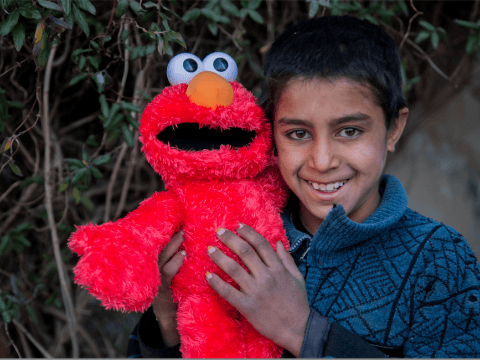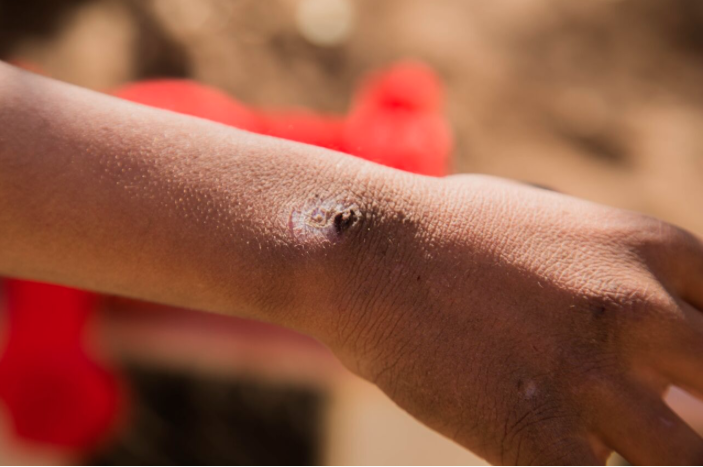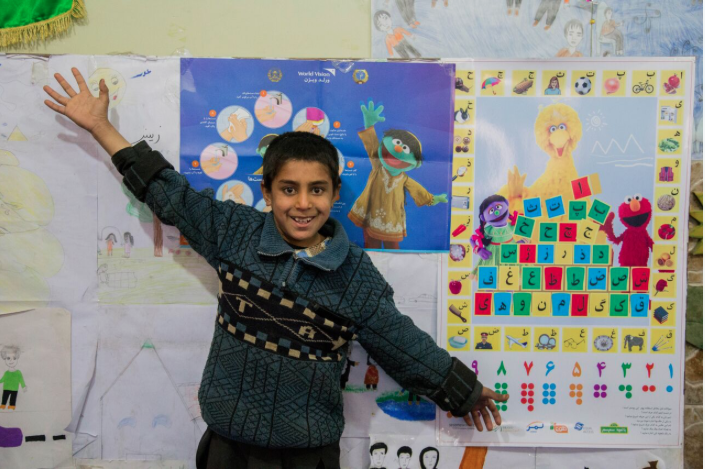Soap Isn’t Only for the Rich!

Whenever Meraj saw soap he always wondered why people would spend money on luxury items when they could buy something to eat or wear or just save their money instead! Hygienic products are for rich people, he thought. Now, though, if someone asks him about his daily routine, he answers, “washing my hands with soap!”
For as long as Meraj can remember he has been wandering the streets from one part of Herat City to another collecting items like glasses, plastic and empty bottles to sell.
Meraj’s father earns less than $1 USD per day. The family’s financial problems didn’t leave any room for Meraj to think about his education. “I studied only to class two. I had to help my father. I left school to work and earn money” he says. Despite his lack of education Meraj speaks with a maturity surpassing his age. He joined the World Vision Afghanistan Street Children Centre two years ago to take advantage of the availability of psychosocial, educational and health services.
Meraj is showing an infected blister on his hand
Just a few months ago he had had to visit a health worker because of an infected blister on his hand. This is a normal blister, he thought. It would heal soon, it happens to everyone. But that tiny blister gradually got larger and larger and he had to stay at home for a few days. “It was very painful,” he says, putting on a brave face. “Some white things were coming out of it. I took medicine and my mother put some herbs on it.” After about a week the infection started to heal, thanks to the medical visit at the Centre.
How soap became an essential part of Meraj’s life
One day at the Centre, Meraj and the other children were told they would be participating in a different kind of activity than they were used to. Meraj didn’t like the idea; he wanted to play football with the other children and participate in group discussions.
A counsellor sat them down on the floor and told them the story of Elmo and Raya. Who are these characters, he wondered?
It was a lot of fun learning about good hygiene from Raya, who taught the children how to stay safe by becoming heroes of cleanliness. It was then that Meraj fell in love with these two cute Muppets and decided to follow their advice on personal hygiene such as hand washing, using a proper toilet and drinking clean water.
“The children connected with Elmo and Raya. They were curious to know what would happen to these Muppets at the end of their stories,” says Mr. Poya, a W orld Vision Afghanistan Street Children Centre Counsellor. He noted that kids loved the Raya and Elmo media clips as most of them don’t have televisions at home. Some were even watching their very first TV programme.
“They asked me to replay the video clips,” he says, “they were totally silent and taking in deeply the Elmo and Raya story.”
After listening to Elmo and Raya, Meraj learned that the blister on his hand could be easily healed or even prevented by simply washing his hands.
When he worked on the street salvaging garbage, he would take food from people and eat it automatically without thinking about the grime on his hands. “Now if someone gives me something, I will eat it after washing my hands” he says. Something that wasn’t a priority before has become a habitual part of his life.
From the video clips in the Centre, Meraj not only learned about the importance of hand washing, but also about about fetching and drinking clean water.
His mother had always told him that water came from heaven, and that you couldn’t get sick from drinking it. After that day at the Centre, he knew otherwise. “I told my mother that kind of thinking wasn’t right, and I even taught her how to store water in the kitchen. We should keep water in a jerry can with a cap.”
With a fund from World Vision New Zealand and World Vision US, World Vision Afghanistan partnered with Sesame Workshop and started implementing the WASH Up! programme for children. The aim of the project is to contribute to the improvement of hygiene behaviour in 300 children living on the street in Herat City.
World Vision Afghanistan worked to provide the proper context for the WASH Up! programme materials - storybooks, the chutes and ladders and story mat games, colouring books and media clips - and staff were trained on the use of the materials.

